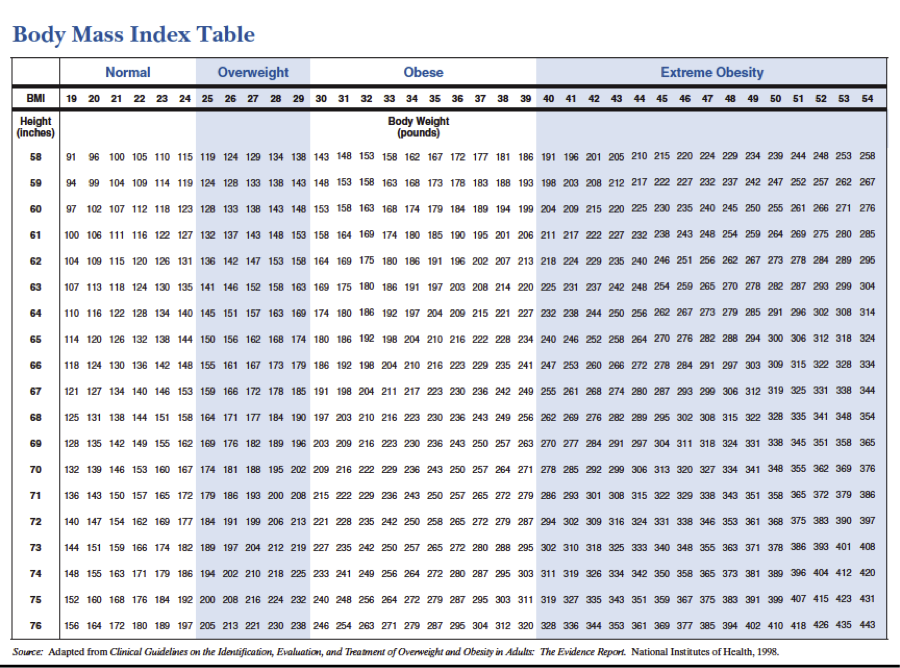Body Mass Index (BMI)
We are often not aware of weight. We know when our clothes are too tight but don’t realize that we might be overweight or obese. We especially don’t notice this in children. We often think it is baby fat that they will outgrow, but research shows us that few children outgrow baby fat after the age of two.
Body Mass Index (BMI) is a number calculated from a person’s weight and height and is a reliable indicator of body fatness for most people.
Calculating a Child’s BMI
For children and teens, BMI is age- and sex-specific and is often referred to as BMI-for-age. After BMI is calculated for children and teens, the BMI number is plotted on the CDC BMI-for-age growth charts (for either girls or boys) to obtain a percentile ranking. Percentiles are the most commonly used indicator to assess the size and growth patterns of individual children in the United States. The percentile indicates the relative position of the child’s BMI number among children of the same sex and age. The growth charts show the weight status categories used with children and teens (underweight, healthy weight, overweight, and obese).
BMI-for-age weight status categories and the corresponding percentiles are shown in the following table.
| Weight Status Category | Percentile Range |
| Underweight | Less than the 5th percentile |
| Healthy weight | 5th percentile to less than the 85th percentile |
| Overweight | 85th to less than the 95th percentile |
| Obese | Equal to or greater than the 95th percentile |
Online BMI Percentage Calculator for Child and Teen
Calculating an Adult’s BMI
What about your weight? Your spouse’s? Use this table to determine how you are doing! You can mark your BMI and any other adult’s in your home with different colors. Remember that heavily muscled people will often fall into the obesity category (even though they are actually a healthy weight for their size) due to the fact that muscle weighs more than fat. If you have any questions, ask your doctor!
Did you know?
Childhood obesity has doubled in the past 30 years.
Children that are Hispanic, African-American or Native American have a much greater probability of being overweight than children who are Asian or Caucasian?
